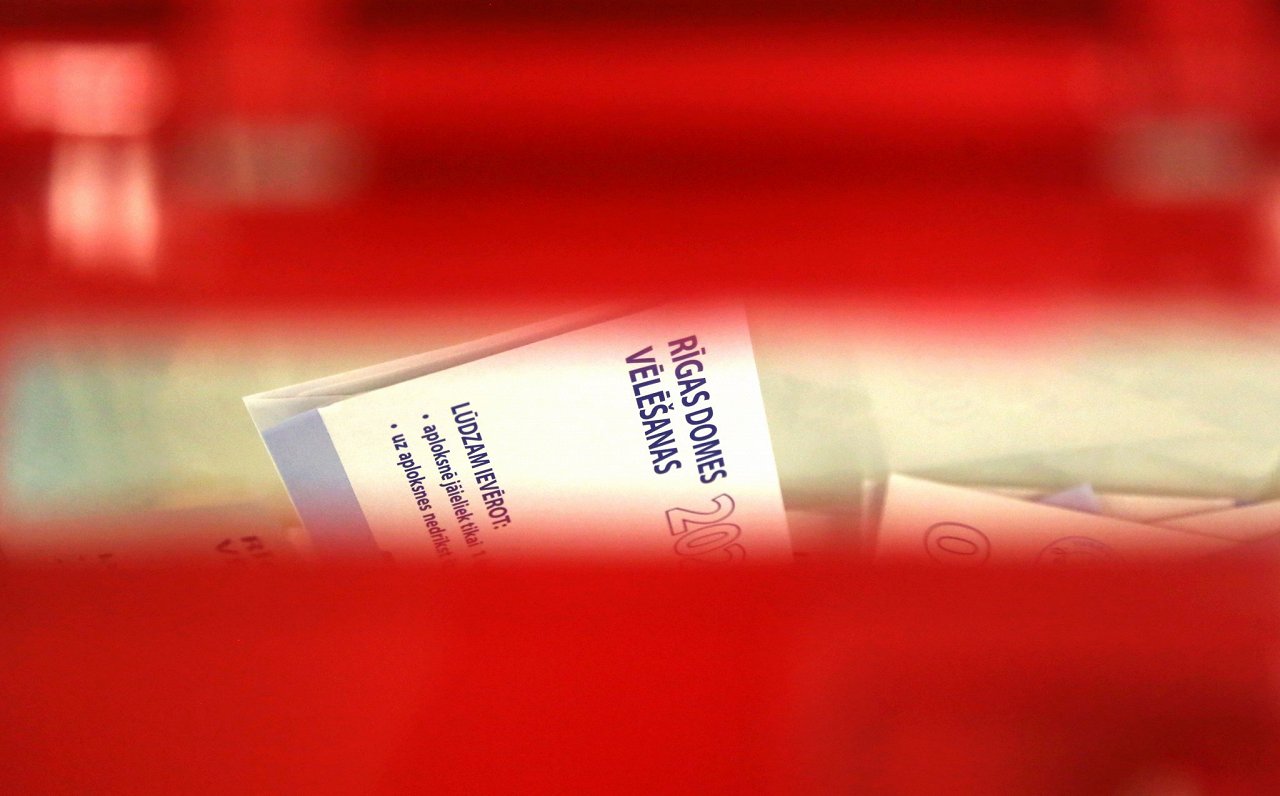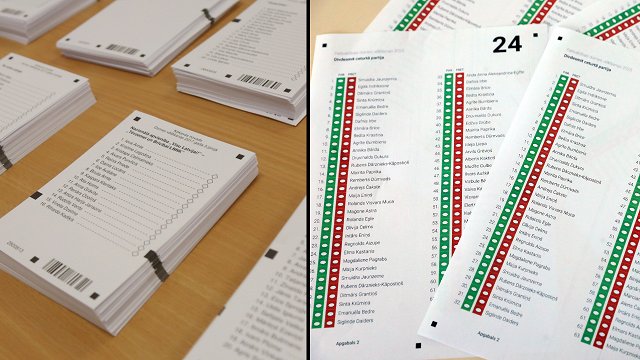In two Rīga polling stations, unsealed ballots were found, the total amounting to 627. It was decided to invalidate the unsealed ballot envelopes and the votes contained therein. In both cases, the CVK decided to ask the State Security Service (VDD) to carry out an examination of the circumstances of the case.
The election results have been officially confirmed, however, parties and candidates have the right to appeal these results to the CVK until Wednesday, September 2.
CVK, modelling the impact of the unsealed ballot envelopes on the outcome of the elections, concluded that in theory the number of Harmony and New Unity mandates in the municipality could be influenced by 320 of the disregarded envelopes.
If it is assumed that among the discredited envelopes there are 320 with a vote for New Unity but not Harmony, then New Unity would gain one additional mandate, whereas Harmony would lose one seat.
One of Harmony's leaders, former longtime Mayor of Rīga Nils Ušakovs told LETA that the party would not appeal the outcome of the elections.
Nor does New Unity plan to challenge the election results. The aim of the political force is to focus on the talks on setting up the coalition and to do everything to get the Rīga City Council to work as soon as possible, LETA said.
Meanwhile, the rival New Harmony party which did not even get close to winning seats on Rīga City Council, with just 1.7 % of the vote, did dispute the results.
The leader of New Harmony, Janis Kuzins, has indicated in a submission to the CVK that the decision of the Rīga City Election Commission to approve the results of the emergency elections of Rīga City Council is illegal and to be revoked.
Given the detection of more than 600 unsealed envelopes in the course of the elections, New Harmony considers that the results of the elections have been significantly affected.
He also said that several voters in Rīga had no chance to vote at home, although they had registered under the law, which, in Kuzins' opinion, was a gross violation. He asked to re-count votes at all polling stations.
CVK in an interview on LTV indicated that the party's complaint is unlikely to revoke the results. CVK chair Kristīne Bērzina said, though, that these irregularities may lead to re-polling at the two specific stations, namely, Rīgas Klasiskā ģimnāzija and Rīgas Puškina licejs.
The revelation that hundreds of votes were not counted because the envelopes in which they were placed were not sealed has led to a revival of the debate about whether electronic voting should be introduced, as has long been the case in neighboring Estonia.





























